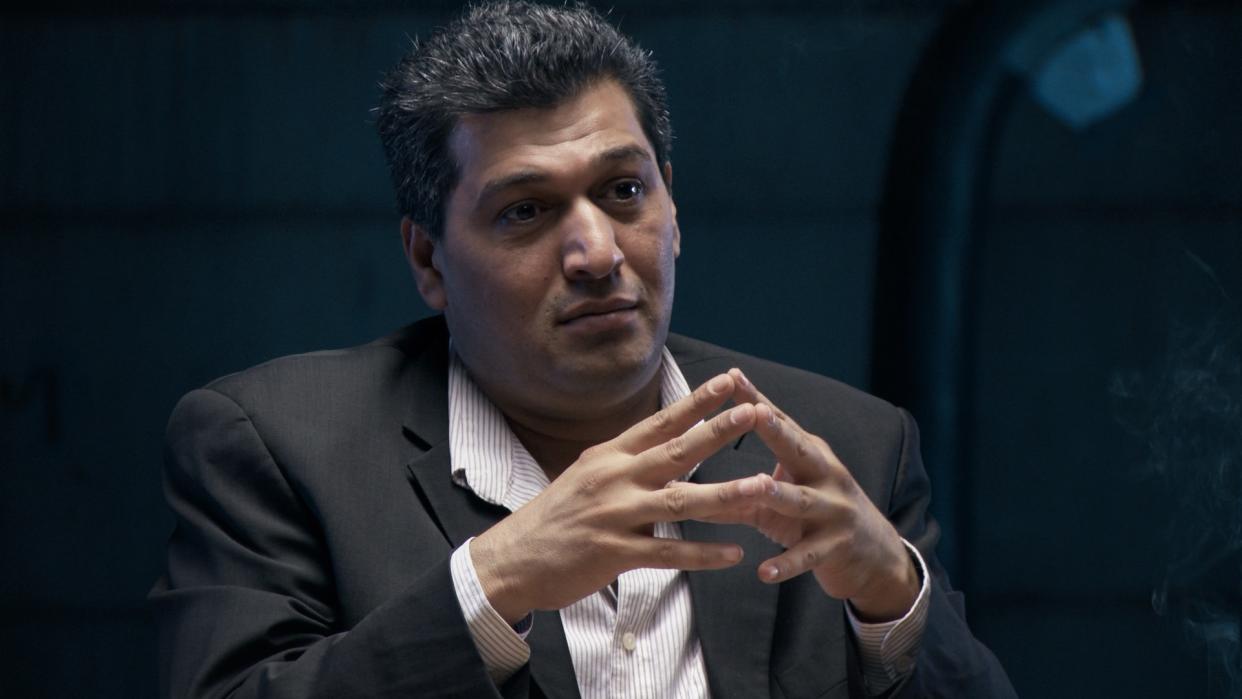Film Review: ‘War of Lies’

In the lead-up to the Iraq War, defector Rafid Ahmed Alwan, aka “Curveball,” became an expert at telling his interrogators what they wanted to hear, ultimately supplying the “evidence” the George W. Bush administration needed to oust Saddam Hussein. In “War of Lies,” the notorious (mis)informer proves an equally slippery interview subject, spinning his version of events in a transparently opaque attempt to restore his reputation, if only in his own eyes. Though Alwan takes just enough accountability to appease German filmmaker Matthias Bittner, audiences are left with ample reason to doubt every word he says — but then, the facts are almost beside the point in what amounts to perhaps the most fascinating psychological exploration of truth and deceit to reach the screen since “The Impostor.” This endlessly fascinating, meta-minded project has had a healthy festival life since its premiere at IDFA last fall and should spark considerable interest with U.S. auds.
Alwan has been looking to sell his story for some time, holding off not only for the right buyer, but also because of the (ultimately ironic) snarl of trust issues the expat petrochemical engineer holds toward a media that may have unfairly positioned him as the scapegoat in the Iraq War’s WMD scandal. Even if he had to pay for the privilege, booking Alwan as the subject of his graduation feature marks quite a coup for Bittner, a Filmakademie Baden-Wurttemberg student whose previous feature, an eye-opening look at displaced Miami sex offenders titled “Not in My Backyard,” also screened at IDFA.
Bittner proves himself worthy of the task, approaching the assignment with the same gravity seen in other tough-subject interview docs, such as the recent Shin Bet tell-all “The Gatekeepers.” He rents a studio, builds a set and puts Alwan in the hot seat, filming his subject as if he were being interrogated in a government detention center, the table before him empty except for a coffee cup, ashtray and tape recorder.
But instead of asking the kind of direct questions you might hear on “60 Minutes,” Bittner launches a more abstract philosophical inquiry, opening with the wildly open-ended “What does the word ‘truth’ mean to you?” (He went in with no questions prepared, except for the final one.) For audiences, the film’s misleading title may imply that it intends to criticize Bush’s bogus reasons for invading Iraq, though Bittner lacks the ammunition for that argument and has instead marshaled a battle for veracity itself — a tug of war with a far-from-reliable source to understand his motives for providing false testimony. (The reasons U.S. intelligence wanted to believe Hussein had WMDs practically go without saying, and the consequences are clear.)
Here, over the course of an intense six-day interview, Alwan claims to be “completely honest” with his interviewers. Opting to take the man at his word, Bittner films a number of re-creations, staging these sequences from Alwan’s p.o.v., with an actor’s hands reaching around the camera to page through documents, clink champagne glasses and pull back his curtains in mounting paranoia. With the camera positioned over his shoulder, the real Alwan reproduces the sketch of the Al Hakam complex, matching an earlier sequence where we see him fool investigators with diagrams for a mobile WMD lab.
From the viewer’s perspective, such subjectivity makes intuitive sense, drawing us into Alwan’s head and inviting us to imagine what he’d been going through, even when the stories themselves sound fishy (as with a red-herring trip to Chiemsee, Bavaria, allegedly arranged by the secret service, but for what purpose?). Bittner is careful not to reconstruct his biggest lies, but rather chooses to focus on the seemingly mundane moments from which they were born, as the Iraqi asylum seeker is moved from apartment to apartment, meeting with investigators from Germany’s BND intelligence agency and feeling disoriented by life in a new country.
As the film’s lone source, Alwan’s narrative isn’t always clear. Sometimes it’s downright contradictory, but that all feeds beautifully into the film’s innovative meta-inquiry: At least he’s consistent in his inconsistency. Bittner clearly wants Alwan to take responsibility, glibly steering him toward some sort of emotional catharsis, but at the same time, he gives us the tools to psychoanalyze Alwan and the extent to which he has been rationalizing his own behavior all these years. Behind that self-satisfied smile or theatrically furrowed brow is a man still spinning things for his own agenda.
Everything Alwan says feeds into an intelligence dossier, and that’s the format Bittner follows with his formally inventive presentation: Titles and end credits give the appearance of spying into a heavily redacted government file, while the rest provides a mix of re-enactment, testimony (from two different interviews taken at different times in two entirely different languages), key documents and archival footage (whose fuzzy, hacked-from-YouTube appearance raises intriguing questions about its authenticity), all laid out on a giant bulletin board — the sort investigators use in police procedurals, complete with red thread to connect the pushpins.
On camera, Alwan proves to be a charming guy, and we want to believe him. But that’s the point: So did the international investigators. “I knew what he wanted,” Alwan says, a Cheshire grin spreading across his face. “We both needed something specific.” And to a fascinating extent, Bittner’s film re-creates that dynamic: Alwan gives him the scoop, and in return, he retakes control of his own narrative, scoring a nice payday in the process.
Related stories
Film Review: 'Monty Python: The Meaning of Live'
Film Review: '(Dis)Honesty: The Truth About Lies'
Film Review: 'The Creeping Garden'
Get more from Variety and Variety411: Follow us on Twitter, Facebook, Newsletter
